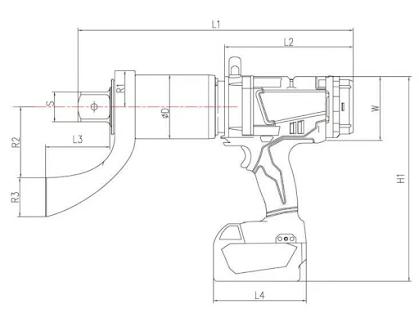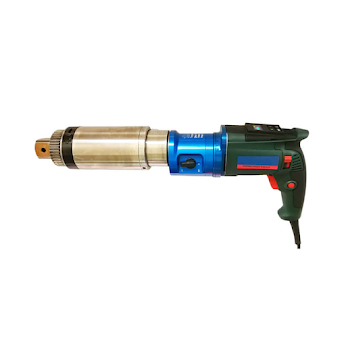A tool that's used to lift objects is identified as a jack. They are accustomed to lift heavy objects and are used for all kinds of purposes. They can be used in garages to facilitate raising the degree of the automobile so your mechanic will get underneath and repair it. They can be found in various sizes and are designed for lifting different weights with regards to the size of the device. They could lift anything from a tiny car to a big truck. It is understood that because of the weight these objects can't be raised up just with manual effort. Hydraulic jacks are tools that are specifically designed for this function; they are a lightweight device that's quite simple to use.
Hydraulic jacks work very efficiently and are available in different types. Everybody nowadays keeps a port in the boot of the vehicle in case there is an emergency. You never know when you might have an accident or any unfortunate incident that'll interrupt your journey? If you are designed with the necessary tools you then don't have to worry even if you have no garage nearby.
The majority of us experienced to improve a tyre at some stage or even you have needed to have underneath the vehicle to see if you have a trouble with it. The main thing to keep in mind is that you should ensure that you're using hydraulic jacks properly; you can refer to the consumer manual that's given to you with the automobile once you purchased it.
Some damages to your car may pertain to the underneath areas of the car. So, it's obvious that you cannot fix it until and unless, it's visible. This is actually the time that hydraulic jacks justify their role in society. These tools are only placed underneath the vehicle and using the lever on it, the vehicle is raised to a particular height. This may enable you to see whether there's any problem with the root of the car, and whether you can repair it.
It is a well known fact that not everybody may be aware of its functioning but it's required to learn to utilise your hydraulic jack. It is likely to be advised that the users gain all the information regarding these tools so that they don't have to panic in the case of an emergency. They will be able to repair the difficulties with the vehicle and continue on the journey. The toolbox of the automobile must essentially have one of these brilliant hydraulic jacks. You will always be ready with the clear answer if you possess these tools.
The Many Flavors of Hydraulic Fluids
As makers and users of hydraulic tools, we realize first-hand the importance that proper hydraulic fluid consistency and purity may have on improving the performance and longevity of a tool. However, with so many various kinds of hydraulic oils in the marketplace, selecting the best type for your tool and task could be rather confusing. This information is meant as a simple introduction to different factors that really make a difference when selecting hydraulic oils.
The basics of a hydraulic system are usually exactly the same - a sealed system that contains incompressible fluid, which will be used to transmit force from the main system to another. However, hydraulics are found in a variety of applications - brakes, industrial presses, power tools and lifts. These applications have varying demands when it comes to speed, temperature, pressure, and sometimes, electrical properties.
Viscosity: Perhaps the most important parameter in selecting a fluid is viscosity. A significant selling point of fluid over pneumatics is that, unlike air, fluid acts as a unique lubricant. However, to be able to get that effect, you need to. Pistons and other moving parts in hydraulic devices possess a thin gap between parts, and the hydraulic fluid creates a movie that smoothes the motion. The incorrect sort of fluid may create problems - for instance, lighter oil may be more vunerable to foaming under top speed or pressure.
Temperature: It's very important to bear in mind the temperature that the oil is likely to be subjected to. Among the features of hydraulics over compressed air is that, unlike air, fluids have a high temperature capacity and will help dissipate heat in addition to transfer power. The downside of this is that, if the fluid gets too hot, it could boil and create pockets of vapor in the machine, causing system failure. This can be a major issue in automobile brake systems, which explains why brake oil is needed to possess a high boiling point (and can also be a chief reason why large vehicles such as for example tractor-trailers use compressed air brakes). low profile torque wrench
Environmental impact: Some hydraulic oils are more environmentally-friendly than others. While water was the original fluid used since ancient times, in the 20th Century many hydraulic fluids started initially to be created using a mineral oil base, since it has better lubricant properties, and can be used at high temperatures. Other substances may include esters or glycols (the latter that are also often used as coolant fluids in major devices such as for example ice rinks). However, recently, many makers have begun manufacturing lines of biodegradable and environmentally-friendly hydraulic oils based on vegetable oils such as for example Canola. They're especially popular in agriculture and other applications where a ruptured pressure line may contaminate ecosystems or the human food supply.
Flammability & electric conductivity: The "Jaws of Life" certainly are a well-known hydraulic tool that's utilized by firefighters and other first responders to quickly cut victims out of crashed vehicles and other dire situations. The oil used for these is really a phosphate-ester fluid; it's desirable because, unlike mineral and vegetable oils, it's non-flammable and has very good electric resistance. This type of oil is found in many aircraft, to prevent conflagrations. If you are using hydraulics in facilities such as for example hydrocarbon processing plants, this can be the fluid class for you. However, bear in mind that organophoshpate oils are very hazardous to human health - swallowing these compounds has been known to cause severe health conditions, as has skin contact; you can find few reports of inhalation, though animal tests showed some neurological problems.
All these records comes with a important caveat: since hydraulic fluids in many cases are formulated with various compounds, the and environmental aftereffects of fluids can differ widely even within one class, according to additives and mixes. Never assume that an oil is safe simply because the key ingredient is, unless the product is specifically made to be non-toxic.
Other factors: As well as these main factors, oils are manufactured with various additives that affect their behavior under extreme pressure, corrosion-inducing properties, water retention and many more.
If no off-the-shelf oil is right for you personally, you can potentially mixing various kinds of oil to attain your desired properties, but you must be careful - some kinds may interact in unpredictable ways, including cavitation and foaming. This really is strictly a DIY solution and not recommended if you don't really understand what you're doing.
Whenever you are utilizing a new or unfamiliar hydraulic tool, always be certain you're using the right oil for the tool and environment that you plan to use it in - this may ensure not just smooth and efficient operation, but your safety as well!
Machines That Employ Hydraulic Use
Since right from the start of time, man has been using machinery and tools to improve his standard of living and perfecting work efficiency. We are the only species on the planet with the intelligence to create and implement tools that can assist us inside our daily tasks. Within the last generations, technological advancements have improved the tools we use today, and have continuously revolutionized industries through each generation, specifically those of yesteryear 150 years. The hydraulics industry specifically could be credited with significantly impacting and changing the face area of human machinery forever. Hydraulic systems are tools and machines that rely heavily on high pressure liquid power to fulfill its functions. Their state of purity with this liquid is essential to manage to perform its purpose, which means the hydraulics liquid has to be run via an oil distillation system to filter any impurities. low profile torque wrenches
Wide kinds of cylinders and motors will transfer this hydraulic liquid in the shape of control valves, hoses and tubes to the cylinders and motors. Plenty of machinery used to execute important functions inside our everyday use utilizes hydraulics in their function. Bulldozers, which are classified as crawlers, move using rigid plates joined together set on wheels, using continuous tracks. The objective of this continual track movement is always to allocate the mass of the equipment over a much bigger surface than mere wheels would manage to dispense. The bulldozer comes designed with a 'dozer blade' ;.Even though a bulldozer is the term assigned to various kinds of machinery, the proper use of the term is just to explain a tractor with a dozer blade.
This blade is utilized in moving debris, sand and soil, especially in construction work. In the first bulldozers, its blade was controlled with a brake, or winch system. They're now fitted with hydraulic cylinders, allowing a great deal more exactitude in the blade's operation. Another bit of machinery which uses hydraulics in its function is really a backhoe. It is some sort of excavating tool commonly known as a digger. Basically it is really a tractor, fitted by having an articulated arm with a digging bucket by the end, found in excavation scenarios. The arm which will be closest to the automobile is known as a boom, and one other the main arm could be the dipper. The bucket and the arm are powered by sophisticated and highly developed hydraulics that enable for accurate movement.









